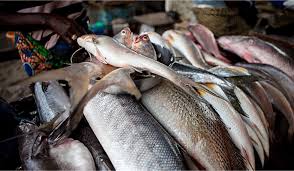Nigeria’s Federal Government has unveiled an ambitious plan to phase out fish importation by boosting domestic production and empowering youth and women in the fisheries sector. The initiative, announced by the Minister of Marine and Blue Economy during a consultative meeting with Fisheries Cooperative Groups in Abuja, is part of a broader effort to reposition aquaculture as a driver of food security, job creation, and export growth.
The Minister stated that the government is committed to transforming the fisheries subsector through a combination of supportive policies, technical assistance, and financial access. He emphasized the urgent need to achieve self-sufficiency in fish production and reduce Nigeria’s dependence on imports.
A major part of the plan includes the provision of start-up grants for youth and women to increase their participation in aquaculture. The Minister described this move as a strategic approach to tackling unemployment and improving livelihoods, adding that several empowerment initiatives were already underway.
He also revealed ongoing discussions with the World Bank to unlock funding opportunities for fish farmers, and with the Nigerian Agricultural Insurance Corporation to deliver affordable insurance packages tailored to the sector. Furthermore, the government is exploring collaborations with the Ministry of Water Resources to replicate the successful aquaculture model of the Oyan Dam across other regions in Nigeria.
The Ministry has pledged sustained engagement with local and global partners and emphasized that integrated planning and cross-ministerial collaboration will be central to the strategy going forward.
During the meeting, the President of the Fisheries Cooperative Federation of Nigeria proposed the launch of a Sustainable Livelihoods and Fish Food Security Initiative (SLESI). The N75 billion, three-year proposal aims to create one million sustainable jobs, reduce post-harvest losses by 50 percent, and raise national fish output by 35 percent. He called on the government to adopt and fund the initiative in collaboration with the Federation.
He also highlighted several persistent challenges facing the sector, including overfishing, poor infrastructure, limited financing, weak extension services, and market linkages. He urged the Federal Ministry to prioritize these issues as part of a coordinated national fisheries development plan.
The overall message from the gathering was clear: revitalizing Nigeria’s fisheries sector is critical to reducing import dependency, enhancing food security, and unlocking economic opportunities for rural communities, particularly for the youth and women who stand to benefit most from a thriving blue economy.










